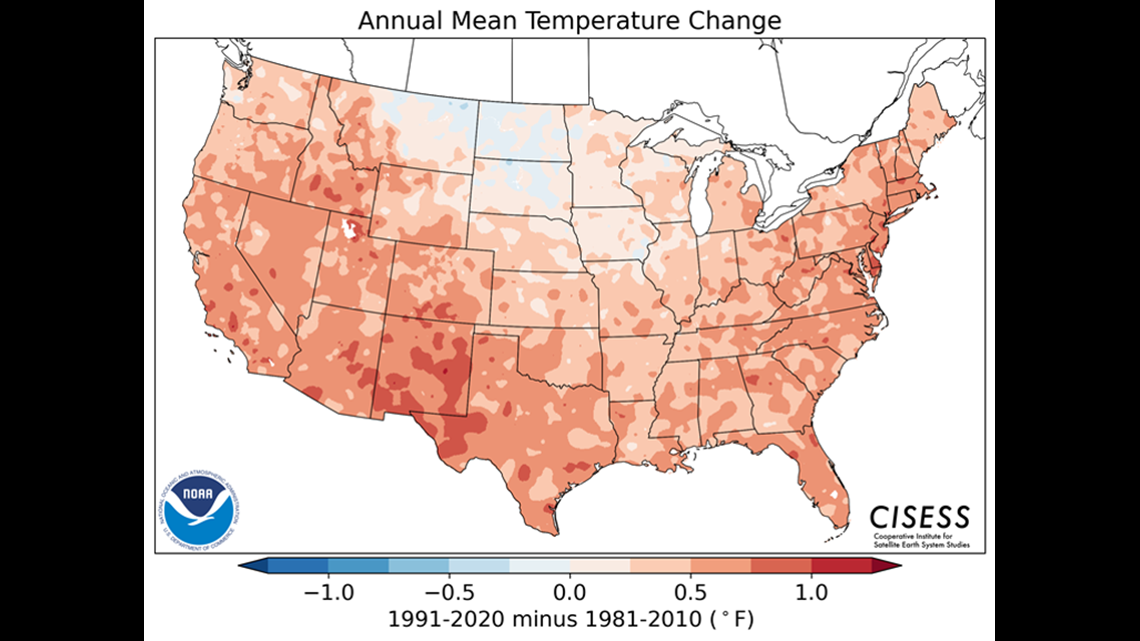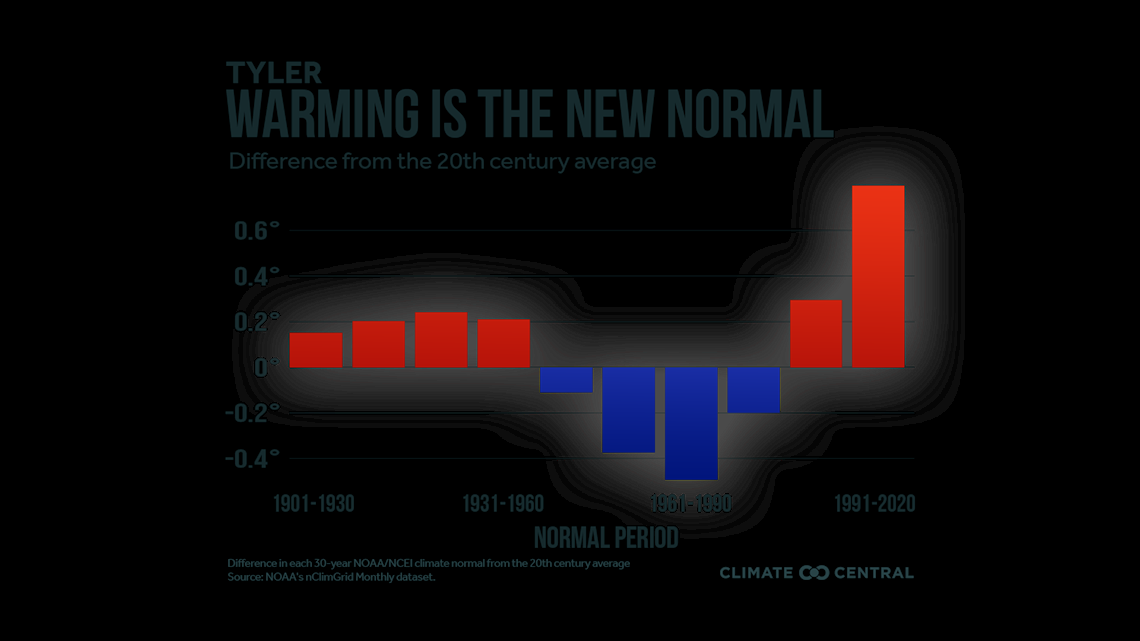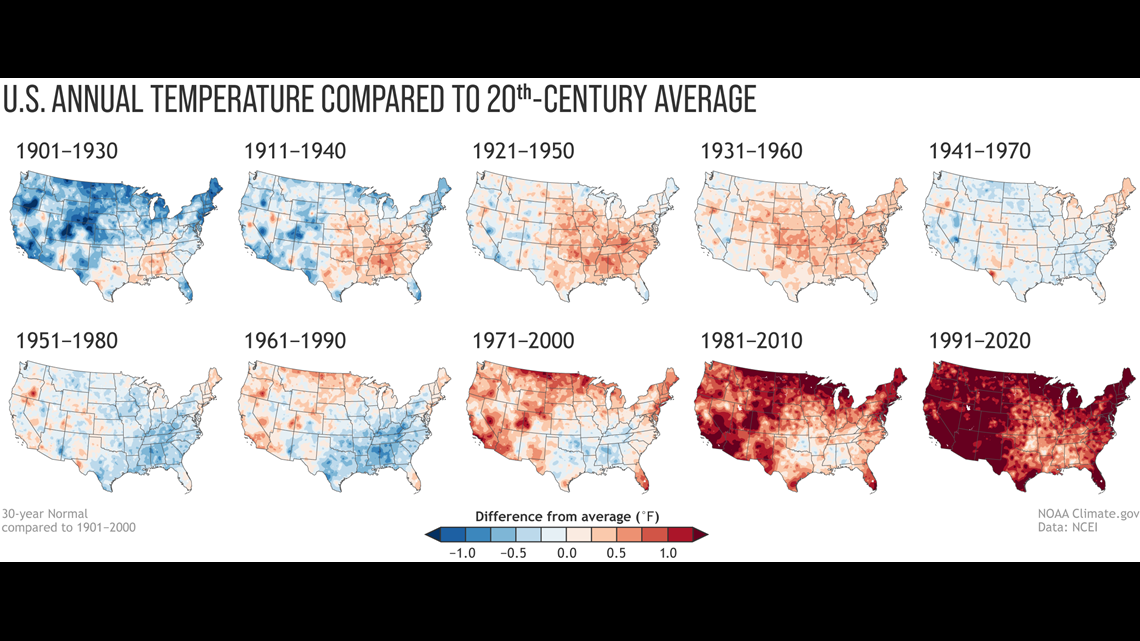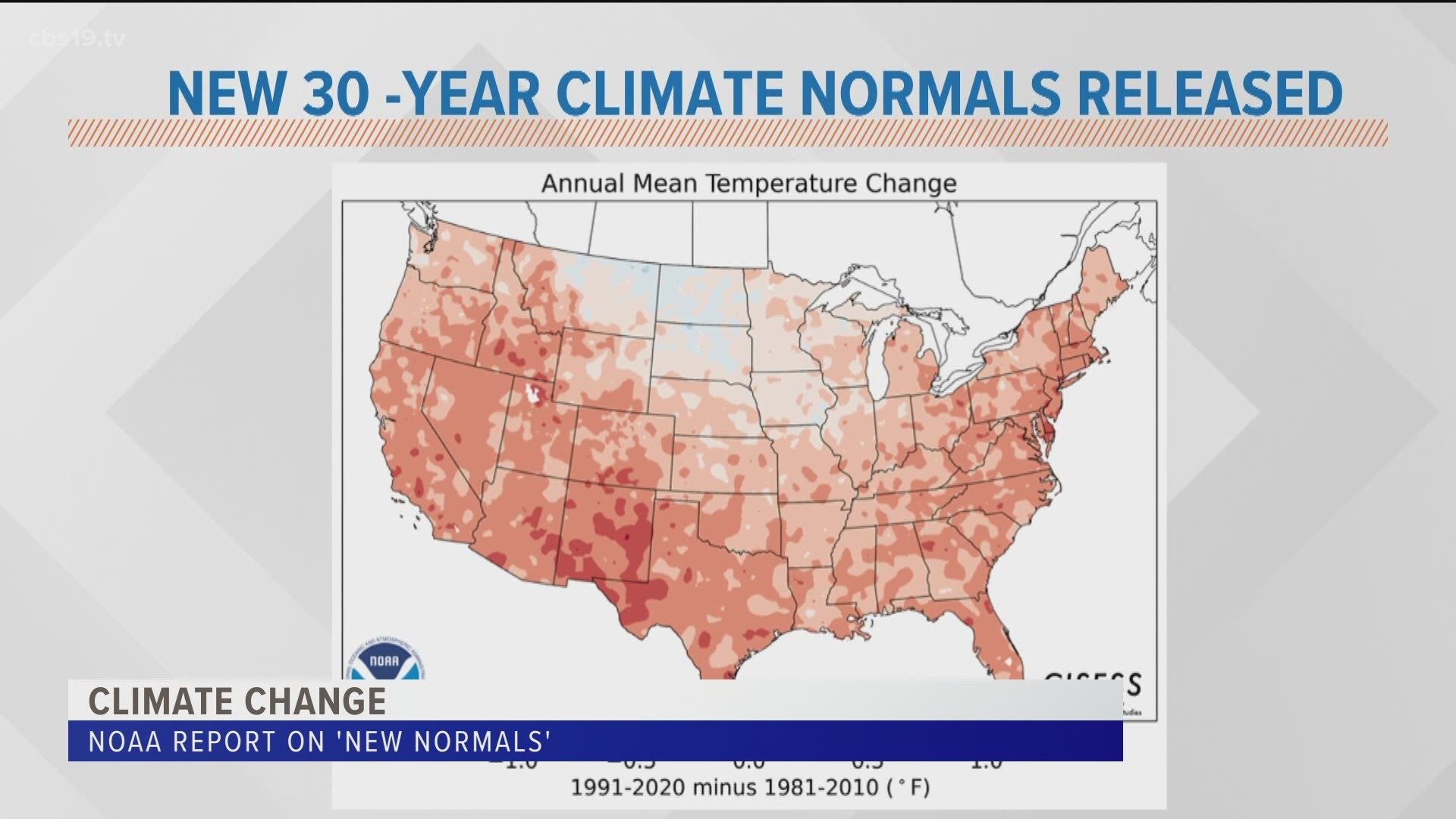TYLER, Texas — Climate change can be considered a "hot topic" especially when you are talking warming trends across the United States.
Every 10 years, the National Oceanic and Atmospheric Administration (NOAA) releases data representing weather across the U.S. from the past three decades. This helps us as meteorologists calculate averages for high and low temperatures along with types of precipitation.
These averages are known as the U.S. Climate normals. The new update now spans between the years of 1991 to 2020. Previously, our data such as daily, monthly and annual averages were based off of climate norms from the 30-year stretch between 1981 - 2010.


For Tyler, trends only slow a slight change compared to some other U.S. cities. For example, Tyler's new average annual temperature is around 66.5 degrees which is about a one degree warmer (+0.9) than our previous normal annual temperature.


The new data also incorporates an additional inch of precipitation across Tyler annually.
On a broader scale, the United States is showing a warmer normal. When comparing the U.S. annual average temperature to the 20th century average the change of long-term global warming is obvious.



